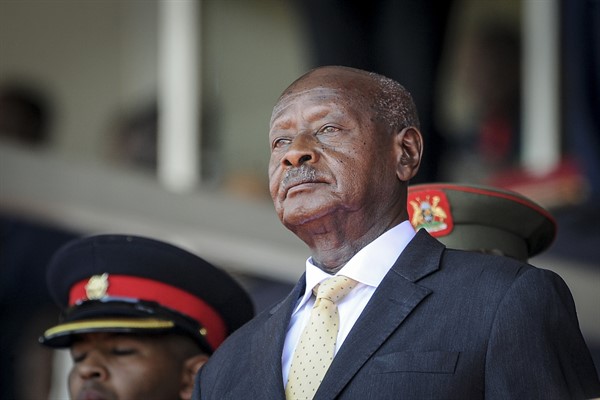Last month, Ugandan President Yoweri Museveni’s son, Muhoozi Kainerugaba, celebrated his 48th birthday with a series of public parties. The events were widely viewed as the thinly veiled launch of a political project that would see Muhoozi succeed his father. The move follows years of similar, albeit more subtle, maneuvers—particularly Muhoozi’s rapid rise through the ranks of the country’s military; the apparent purge of potential contenders within the ruling National Resistance Movement (NRM) party; increased public appearances; and, more recently, his flurry of meetings with various diplomats and heads of state.
It is not yet clear what is prompting the apparent acceleration of the “Muhoozi Project,” as the succession plan is commonly referred to in Uganda. Throughout the four decades of his rule, Museveni has always been extremely possessive of power. However, his age—officially, he is 77 years old, although some pundits put him at 85—combined with the country’s demographics and the NRM’s current internal dynamics offer some possible clues as to why the plan is gaining steam.
It is possible that Museveni’s age could be rendering him physically weaker and unable to efficiently handle the responsibilities of the presidency. The unprecedented challenge he faced in the 2021 election from popular singer-turned-politician Bobi Wine, fueled by the country’s demographic shift to a younger population, has also likely pushed Museveni to consider his retirement. Over 75 percent of the population is below age 30, and Uganda’s youth unemployment rates are among the highest in Africa.

